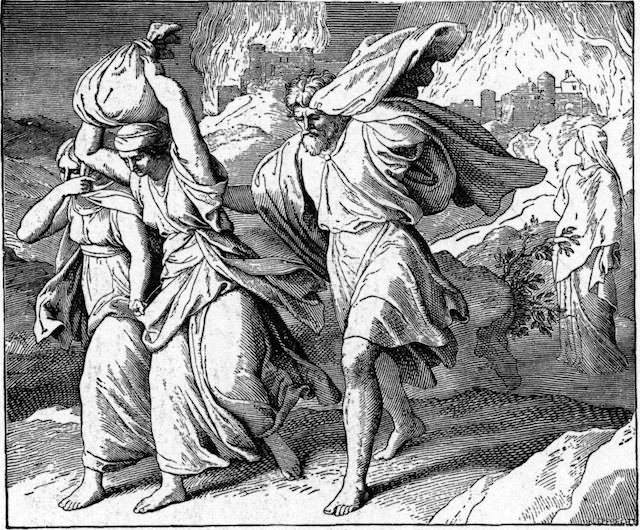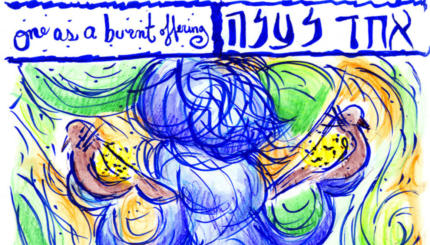Sodom and Gomorrah are two cities mentioned in the Bible that were destroyed — in fire and brimstone — for their sinfulness.
Situated on the fertile Jordan River plain in ancient Canaan, the cities were prosperous. But, according to Genesis, the residents were also terribly wicked and God decided to therefore destroy them. Perhaps because Abraham’s nephew Lot lived in one of them, Sodom, God revealed the plan of destruction to Abraham. Abraham responded by asking if God would destroy good people in the city along with the wicked. God conceded that if an adequate number of innocent people were found in the city, it would not be destroyed. Abraham tested the number. Would 50 be enough to save the city? 45? 30? 20? 10?
God sent angels to the cities that were destined for destruction. Lot invited the angels into his home, but the villagers surrounded the house and demanded that Lot release them so that they could have their way with them. Lot refused and protected the men, even offering his virgin daughters in their place. Having confirmed the iniquity of the cities, the angels told Lot and his family to flee at daybreak, and not look back. But Lot’s wife could not resist throwing a backward glance at her home and was turned into a pillar of salt.
There is some debate about the nature of the city’s sins. Because the villagers desired to “have their way” with Lot’s guests, some Jewish authorities have understood that the underlying sin was male homosexual intercourse. But what the Sodomites had in mind was anything but consensual. Other Jewish authorities point out that the story, which is directly juxtaposed to the story in which Abraham welcomes the same angels into his tent, shows that the true sin is abominable mistreatment of strangers—exemplified in homosexual rape.
With your help, My Jewish Learning can provide endless opportunities for learning, connection and discovery.
The story has long been a touchstone for discussions of evil and destruction, mentioned in many other biblical books, including many books of the prophets.



